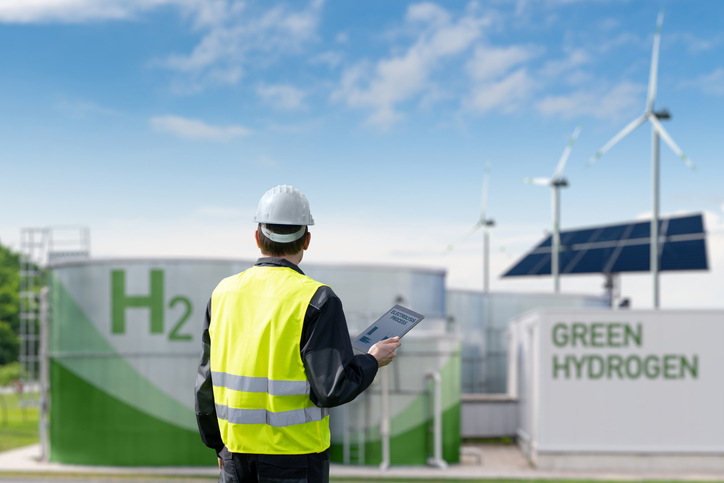
A Cleaner Tomorrow
We already know that the world faces mounting challenges from climate change and a growing demand for sustainable energy. One solution that is gaining attention: hydrogen fuel catalysts. These ground-breaking technologies could change the way we power our world, offering a cleaner and more inclusive energy future.
So what is their potential, the obstacles they face, and the actions needed to turn this vision into reality?
This article is based on in-depth strategic research ‘Hydrogen Fuel Catalysts’ by PreEmpt.Life, available for download, free of charge.
Unlocking the Power of Hydrogen
Is energy production leaving no carbon footprint possible? Hydrogen fuel catalysts make this vision not only possible, but probable. Unlike traditional sources, they generate power without harmful emissions – just water from exhaust pipes and chimneys, providing a genuine chance to cut global pollution and bridge energy divides. Their impact extends beyond replacing fossil fuels, they’re a gateway to a decentralized energy system everyone can access.
Achieving this vision requires substantial investment in research, supportive policies and infrastructure. Over the next two decades, building a hydrogen-powered economy will demand global cooperation and swift action to dismantle outdated systems. Delays could deepen energy divides and exacerbate environmental crises.
Fair Access: A Global Challenge
A major concern in this transition is ensuring hydrogen fuel remains accessible to all, not just a privileged few. The threat of monopolization, with dominant companies or nations controlling supply, is real. To counter this, unprecedented collaboration among governments, scientists and businesses is essential for creating an equitable energy framework.
One proposal involves forming an international body to oversee hydrogen development. By establishing hydrogen technology as a shared global asset, we can foster innovation, affordability, and fairness, while preventing exploitation. This approach depends on eliminating regulatory and economic barriers to ensure no single entity gains unchecked power, and red-tape does not stifle innovation.
Clearing the Path to Progress
Just like any transformative technology, hydrogen fuel catalysts face hurdles. High costs, technical limitations and conflicting regulations block widespread adoption. Certain nations or corporations may resist, prioritizing short-term profits over long-term progress. Bold partnerships and dedicated investments in technology are vital to overcoming these barriers.
Success will mean building a truly global energy system, one that balances local needs with international goals. This transition may not be simple or cheap, but it remains essential for a sustainable future.
A Look Ahead: Possible Futures
The road to a hydrogen-based energy system could lead in several directions. Here are four scenarios that outline what might lie ahead:
Global Cooperation: “Hydrogen Harmony”
A fully integrated hydrogen economy emerges, where countries work together instead of competing. This vision prioritizes shared access and benefits, addressing climate change through collective action.
- Upside: Cleaner air, stable economies and global resilience.
- Downside: Coordinating policies on a global scale is complex and time-consuming.
Zero-Waste Focus
Hydrogen technology drives a circular economy, ensuring resources are reused and waste eliminated.
- Upside: Minimal environmental impact and new green jobs.
- Downside: Requires a massive overhaul of existing systems and mindsets (especially mindsets!).
Localized Empowerment
Communities produce their own hydrogen fuel, fostering regional self-reliance.
- Upside: Energy independence and job creation at the local level.
- Downside: Scaling such efforts globally could prove difficult – technology, expertise and cost.
Monopoly Risk: “TechnoColonialism”
The worst-case scenario sees hydrogen technology controlled by a few powerful players, exacerbating global inequalities. This is a massive hurdle to overcome.
- Upside: Faster development and deployment of technology.
- Downside: Widening gaps between rich and poor nations.
A Blueprint for “Hydrogen Harmony”
Among these futures the “Hydrogen Harmony” scenario holds the most promise. Achieving this requires clear strategies and unified goals:
- Global Policy Alignment: Countries must work together to create policies that encourage hydrogen adoption and fair practices.
- Technological Innovation for All: Research efforts should focus on making hydrogen production affordable and accessible.
- Economic and Social Balance: The benefits of hydrogen must reach every corner of the world, from urban centers to rural villages.
By prioritizing inclusivity and collaboration, we can build a decentralized, equitable energy system that benefits everyone.
Actions for the Present
To navigate the hydrogen transition effectively, stakeholders should consider:
- Encourage Cross-Sector Collaboration: Breaking down silos between industries will accelerate innovation and avoid redundant efforts.
- Adopt Holistic Thinking: Tackling energy challenges requires seeing the big picture, not just the isolated problems.
- Promote Interdisciplinary Solutions: Drawing insights from multiple fields leads to stronger, more adaptable strategies.
- Focus on Long-Term Impacts: Decisions made today must account for future generations and the planet’s well-being. Think ahead to act ahed.
- Balance Tech with Human Oversight: While AI can help, human values and intuition should guide decisions.
- Adapt to Local Needs: Tailoring global strategies for regional realities ensures no one is left behind.
What Next?
Hydrogen fuel catalysts could reshape our energy future, but turning this promise into reality requires everyone’s participation. Companies like PreEmpt.Life are leading the charge, using advanced decision intelligence to help organizations plan for the future. Their expertise empowers leaders to make informed, forward-thinking choices in this critical moment.
Together, we can build a cleaner, fairer energy system. The time to act is now.
